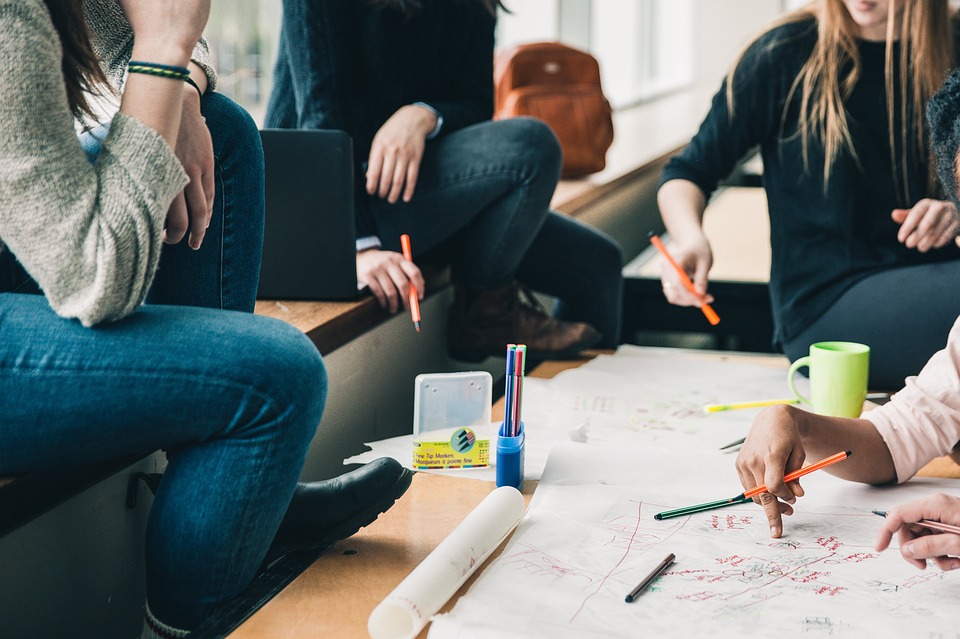E-Lab – an experimental tourism lab for students
Students can find it challenging starting as a prepared professional in the tourism work field. The Next Tourism Generation Alliance (NTG) aims to address this gap and highlight possibilities and tools to promote professionalism and employability via university tourism modules. Breda University of Applied Sciences offers first-year Tourism Management students the E-Lab module, a 6-week course where they are introduced and acquainted with online programmes and tools used in the industry.
Structure of the module:
The award-winning module was established two years ago. The curriculum of Tourism Management at Breda University experienced a drastic change which also included the development of the E-lab. E-Lab is an experimental lab for 1st year (international) tourism students. They get multiple assignments which they must carry out individually, in pairs or in groups. Those assignments focus on developing the digital skills of the students, but also their professional capabilities in cooperation.
Digital skills – social media scan
The first assignment tests the ability of the student to analyze the business profiles of airlines on social media channels. They must compare the social media efforts of three organizations and put the results of this analysis into a creative infographic.
Digital skills – research
For the second assignment, the student starts to work with Google Analytics and MailChimp. Richard Otten from Glamping offered the Google Analytics details of his website to the students so they can provide extensive recommendations, based on the insights.
Digital and social skills – content creation and cooperation
The group work is carried out in the third week and focuses on multiple sub-assignments. A website is created about a specific city in the Netherlands which provides attractive content to the website visitors. The creation of an animation video using the digital program, Powtoon, is part of the assignment. Additionally, students create 360 video content of the specific destination with Samsung equipment.
Digital and social skills – The Appathon: final presentations about mobile concept application
The last assignment challenges groups of 4 to work on a concept of a mobile application which is dedicated to either a destination or a theme park. By exploring the core of the business, people and technology of the chosen topic, a unique mock-up of a mobile application concept has to be developed and presented in the final week. In this way, the students can develop and improve their digital capabilities but also work on their presentation and persuasive communication skills in a formal setting.
The E-Lab takes place twice a week, around 5 hours per session. The students set up their own cooperation rules based on their values. The sessions are mandatory but provide a lot of freedom for creativity and innovation. The students can take breaks whenever they want, walk around, have discussions and brainstorm about creative ideas. In this way, BUas encourages the students to discover their own capabilities, but also develop their personal and professional development which is of high relevance, especially in the first year.
Student and Co-ordinator Experience of E Lab
Marenna van Reijsen, one of the coordinators of the E-Lab program, explains the intentions of the set-up in a video that is shot in the new campus ‘Horizon’ at Breda University.
Students often experience the E-Lab as a very interactive and relevant module in the first year. They already get acquainted with the basics of various digital skills, computer programs and theories. This often helps them to better understand other subjects of the tourism course.
Relation to NTG
The E-Lab works in a way that supports the objectives of the Next Tourism Generation (NTG) project as it brings the industry closer to the students. They can actively develop their professional and personal skills, which also relate to the digital and social skills sets currently investigated by NTG. The NTG project aims to define and map the digital and social skill sets based on extensive project research. This will assist Breda University of Applied Sciences to add those skills to the E-Lab structure and other modules to respond to the fast-changing and increasing skills gaps in digital, green and social skills sets and teach our future tourism employees how to effectively apply them.
Follow the efforts of the Next Tourism Generation via our website, Facebook, Twitter | #NTGskillsalliance or via LinkedIn




No Comments